Welcome to the 69th issue of Python Monthly!
If it’s your first time here, welcome, I like you already. If you want the full back story on this monthly newsletter, head here.
The quick version: I curate and share the most important Python articles, news, resources, podcasts, and videos.
Think the Pareto Principle (80/20 rule) meeting the Python world. I give you the 20% that will get you 80% of the results.
If you're a long time reader, welcome back old friend.
Alright, let's not waste any valuable time and jump right into this month's updates.
Here's what you missed in August 2025 as a Python Developer…
Python Performance Myths 🎢
Antonio Cuni, who is a longtime Python performance engineer and PyPy developer gives us some key points to consider when looking at Python performance.
Some of these may surprise you.
Do You Need Classes? 👨🏫
Python is an incredibly versatile programming language known for its simplicity and readability. Among its features, the ability to use classes for object-oriented programming is both powerful and frequently recommended.
However, classes aren’t always the best solution. In many cases, Python’s built-in types, functions, and standard library modules provide simpler, cleaner alternatives.
Here are several scenarios where you might not need a Python class.
Functions Inside Functions 🪆
A nice primer on nested functions in Python and the power that comes from using them. Enjoy!
Weekend Project Idea 🧰
I found a cool library for you to play with this weekend: Tilf (Tiny Elf) is a free, simple yet powerful pixel art editor built with PySide6. It’s designed for creating sprites, icons, and small 2D assets with essential drawing tools, live preview, undo/redo, export options and more.
Pyx 📸
pyx is now in Beta and is out from the Astral team. It is a Python-native package registry. Go check it out... the Astral team has been building some great tools around the Python ecosystem lately.
uv Code Formatter 🧹
Speaking of... uv format: Code Formatting Comes to uv (experimentally!)
The uv format command provides Python code formatting through uv’s interface. Under the hood, it calls Ruff’s formatter to automatically style your code according to consistent standards.
Python Subinterpreters 🔬
PEP-734 subinterpreters in the stdlib has officially been included in the Python 3.14 as a very late addition. subinterpreters now has a new home in the standard library module called concurrent.interpreters.
Confused? Here is a breakdown of what it all means.
10x Dev with AI? 🧎♂️
AI is not Making Engineers 10x as Productive. This is worth a read. I especially liked this part:
There is no secret herbal medicine that prevents all disease sitting out in the open if you just follow the right Facebook groups. There is no AI coding revolution available if you just start vibing. You are not missing anything. Trust yourself. You are enough.
Oh, and don't scroll LinkedIn. Or Twitter. Ever.
A.I. and the Economy 💰
How AI Conquered the US Economy: A Visual FAQ. This is an interesting overview of just how much money is going into the AI space.
Nobody is getting left behind, but is there a bubble forming?
Good System Design 📔
What is system design?
If software design is how you assemble lines of code, system design is how you assemble services. The primitives of software design are variables, functions, classes, and so on. The primitives of system design are app servers, databases, caches, queues, event buses, proxies, and so on.
This post is an attempt to write down, in broad strokes, everything this author knows about good system design.
Current Agentic AI Best Practices 🔮
There is a lot of junk out there on this topic but I found this article surprisingly accurate. If you are working with agents, this is a good list of current best practices.
Also check out this new open standard: Agents.md
AWS in 2025 📮
AWS in 2025: The Stuff You Think You Know That’s Now Wrong. Worth checking out.
News Around the World 🗺
-
An important reminder: AWS CEO says using AI to replace junior staff is 'Dumbest thing I've ever heard'
-
For security enthusiasts, this made the rounds this month: Weaponizing image scaling against production AI systems
-
For open source enthusiasts, this comment from the Ghostty community made the rounds
Big Tech News aka AI News 🏢
-
In a shock to everyone, OpenAI actually released an open source model (I dont think they've done that since 2019). Open-weight reasoning models to customize for any use case and run anywhere.
-
But the bigger shock out of OpenAI is the release of ChatGPT 5. It's definitely an improvement but was a little underwhelming to be honest with you. Perhaps it's hinting at the limits we are hitting with LLMs? A hackernews user put it nicely:
It is frequently suggested that once one of the AI companies reaches an AGI threshold, they will take off ahead of the rest. It's interesting to note that at least so far, the trend has been the opposite: as time goes on and the models get better, the performance of the different company's gets clustered closer together.
Right now GPT-5, Claude Opus, Grok 4, Gemini 2.5 Pro all seem quite good across the board (ie they can all basically solve moderately challenging math and coding problems).
As a user, it feels like the race has never been as close as it is now. Perhaps dumb to extrapolate, but it makes me lean more skeptical about the hard take-off / winner-take-all mental model that has been pushed.
-
Google announce Genie 3 which looks pretty incredible. Given a text prompt, Genie 3 can generate dynamic worlds that you can navigate in real time at 24 frames per second, retaining consistency for a few minutes at a resolution of 720p. They also announced Gemini 2.5 Flash Image (aka nano-banana), their state-of-the-art image generation and editing model.
-
Google also announced Jules is out of beta: Their asynchronous coding agent powered by Gemini 2.5.
-
Google's least popular announcement this month was that Google will require developer verification to install Android apps, including sideloading for the first time.
-
Anthropic released Claude Opus 4.1: an upgrade to Claude Opus 4 on agentic tasks, real-world coding, and reasoning.
-
Cursor team released Cursor CLI finally to compete with probably their biggest competition: Claude Code.
-
GitHub CEO Thomas Dohmke has resigned, and GitHub is moving even closer into Microsoft’s CoreAI team... going back to the dark side of Microsoft.
-
DeepSeek v3.1 was also released.
Completely useless to your career but still great 🙃
-
Draw a fish and make it swim... thanks to vibe coding.
-
History of tech... from the very beginning.
-
This is just so cool: Astronomy Photographer of the Year 2025 shortlist.
Best Resource of the Month 🥽
It’s no wonder that everyone struggles to figure what to do with their lives: we have not developed the cultural technology to deal with this problem because we never had to.
We didn’t exactly evolve in an ancestral environment with a lot of career opportunities. And then, once we invented agriculture, almost everyone was a farmer the next 10,000 years. “What should I do with my life?” is really a post-1850 problem, which means, in the big scheme of things, we haven’t had any time to work on it.
So what do you do in an ever changing world to feel like you're living your life that you want?
This resource of the month is different than the usual read, but I think it will have a tremendous impact for some of you.
Trick of the Month 🎩

This is an interesting trick of the month. It's the secret to life and happiness shared by none other than Steve Wozniak... simple but true.
See you next month everyone... also share this with your friends... pretty please! ❤️
By the way, I teach people how to code and get hired in the most efficient way possible as an Instructor at the Zero To Mastery Academy. You can see a few of our courses below or see all ZTM courses here.
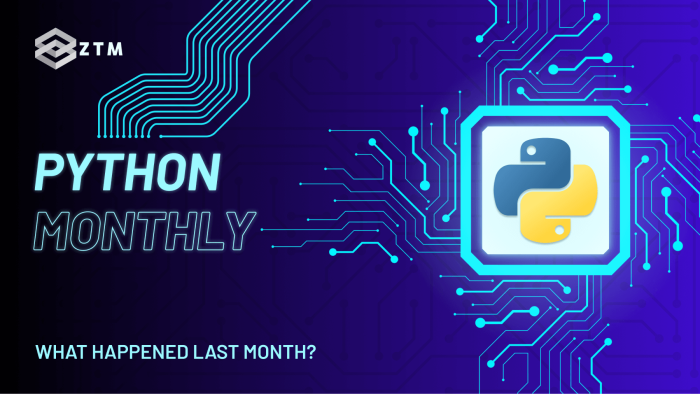

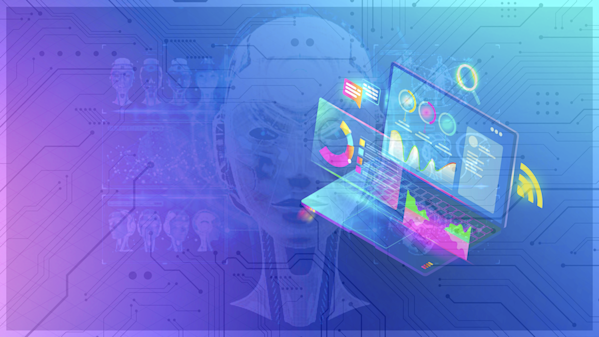
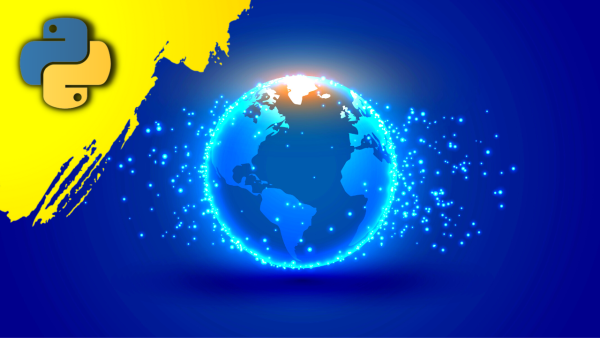
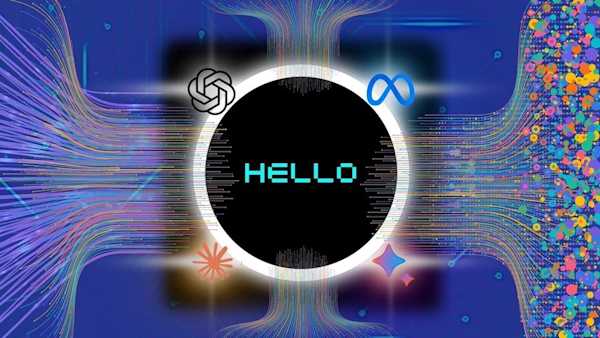
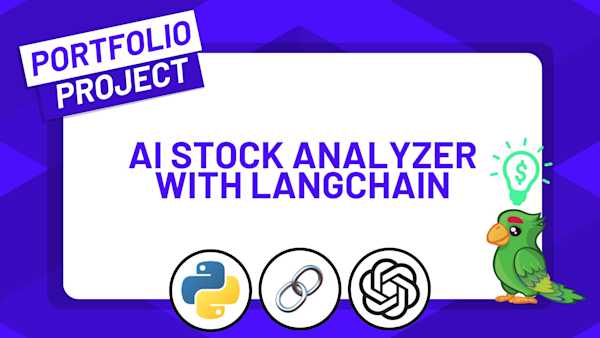
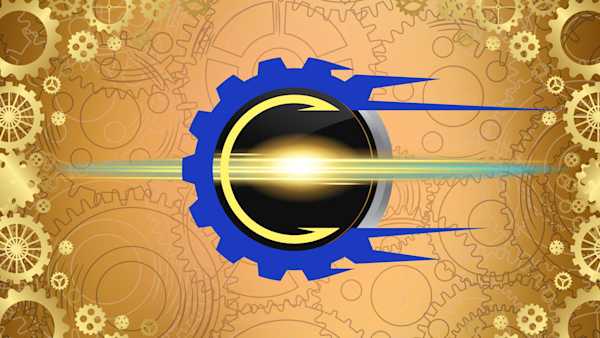
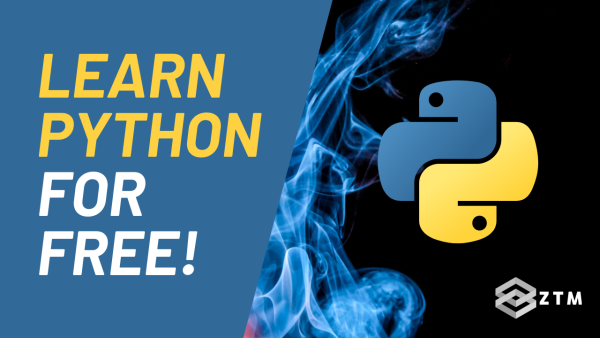
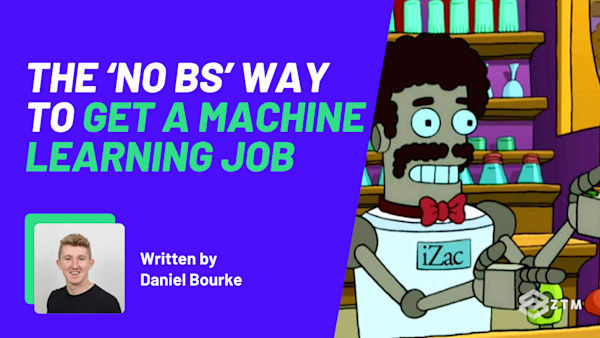

![[August 2025] AI & Machine Learning Monthly Newsletter preview](https://images.ctfassets.net/aq13lwl6616q/4AlNTN2G0RvNEvMCvcqOsp/587e80b7217a71253d38076668d36694/AI___ML_Monthly.png?w=600&h=338&q=50&fm=png&bg=transparent)